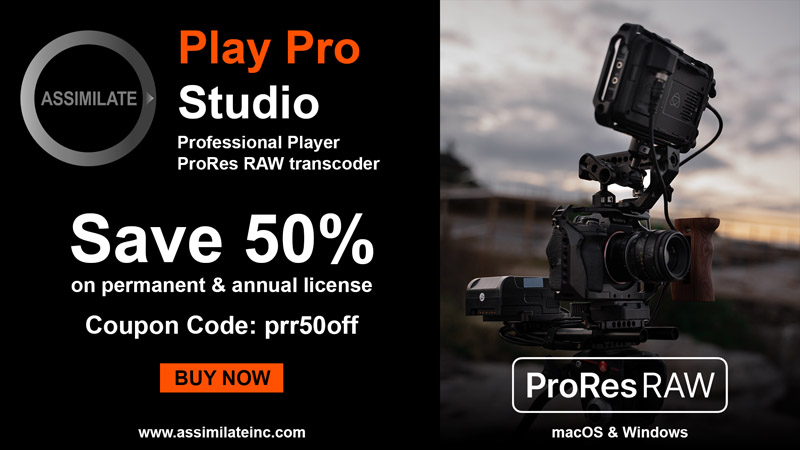Take Your Filmmaking Skills to the Next Level with These Accessories and TIps

By Ben Halberstam, CEO of Movo
Once you’ve mastered the basic filmmaking products – such as a camera, microphone, and stabilizers – it’s time to branch out and learn more about the world of film to take your projects to the next level. The most important step to breaking into filmmaking is understanding the fundamentals, but if you want your work to be successful, you’ll need to develop and cultivate your own unique shooting style. To help you achieve this goal, video accessories like camera filters and on-camera shotgun microphones give you more capabilities and customized options for how to shoot.
On-Camera Shotgun Microphone
One of the best ways to capture audio and video at the same type is by attaching a high-quality mic directly to the camera. Shotgun microphones are a type of unilateral microphone, which have a very specific focus on one direction. This is beneficial in filmmaking because the mic can pick up sound from the exact direction it is emanating from and cancel out distracting background noise. By attaching the shotgun microphone to your camera, the device will record the audio onto your camera, eliminating the need to add sound in later. Most shotgun microphones also come with windscreens to prevent wind noise from distorting the sound quality.
Extension Tubes
As you experiment with your video accessories, you may notice that you’re having trouble keeping your image focused, particularly when using a video stabilizer. To help eradicate this problem, you can attach an extension tube between your camera and your lens. This will help improve focus. The extension tube puts more space between your camera and the subject to help bring it into focus and create a clearer picture.
Big Memory Card
Don’t skimp on your memory. You’re going to be shooting a lot of material so that you will have plenty to work with later when you’re editing all of your footage together. The last thing you want to happen is to run out of space mid-shot. Opting for a memory card with more space will prevent this issue. We also recommend carrying an extra memory card on you at all times in case you do run out of space while trying to capture that perfect shot for your film.
Different Camera Lens and Filters
Lenses and filters are the keys to creating your own unique look within your films. If you’re shooting expansive landscapes in your filmmaking endeavors, a wide-angle lens is necessary to capture the scene’s beauty and add a dramatic effect. You can also use wide-angle lenses for very tight, close-up shots. The standard lens is the one you’ll probably use most often to film regular perspective shots, but it’s not ideal for closer takes. A portrait lens is great to use during interview shots as it focuses in on the subject and blurs the background, making the focus on the subject crisp and appealing.
Using camera lens filters can allow you to exert more control over the lighting of your scene and add interesting effects to the image. If you’re looking to make your colors brighter with more of a pop or if you want a purposely washed-out look, filters can help you achieve the appearance you want. Filters can alter colors, add special effects and enhance your camera’s exposure.
Tips to Improve Your Filmmaking
Start with a Small Project
You don’t need to make your feature film your first project. In fact, practicing with many different short projects will help you get a better understanding of how your equipment works and what kind of style you have. Trying to create a full-length film on your first try can be difficult as there are so many different techniques and skills you need to have to get every scene just right. Instead, create a few micro-short films and focus on one particular skill each time, like movement or lighting, to practice.
Know How to Use Your Gear
You may have the fanciest recording equipment on the market, but if you don’t know how to use it, it’s not going to make your film look any better. You need a strong understanding of each device so that you have more control over how your final product looks. This is another reason to start with a small project so you can spend more time and energy on specific filming skills until you feel like you’ve mastered each technique.
Advice: Start with one project to practice using your shotgun microphone and get the sound perfected. Next, dive into another project to experiment with your camera lenses and filters until you’ve found a style that you can use across every piece of work.
Learn Everything You Can About Filmmaking
Much like how writers study the work of their favorite authors, filmmakers should watch movies that they admire and take notes on what exactly it is that they like about the filmmaker’s style. The more that you learn about film, the better you’ll be able to create your own. In your free time, you should be educating yourself with articles, videos, books and podcasts to learn more about video making skills and how to implement them into your work.
Making a film of any kind and length can be a time-consuming endeavor, but with the right video accessories and an understanding of the industry, you can create something that’s all your own. To get the best quality video, invest in good equipment. Review your shoots to identify areas where you are strong and areas where you need to improve. Once you’ve mastered your equipment, plan out a short project and put all your knowledge to the test by incorporating video accessories and your own artistic style.

